
The Forty-Eighters (48ers) were Europeans who participated in or supported the Revolutions of 1848 that swept Europe. In the German Confederation, the Forty-Eighters favoured unification of Germany, a more democratic government, and guarantees of human rights. Disappointed at the failure of the revolution to bring about the reform of the system of government in Germany or the Austrian Empire and sometimes on the government's wanted list because of their involvement in the revolution, they gave up their old lives to try again abroad, emigrating to Australia, the United Kingdom, and the United States. These included Germans, Czechs, Hungarians, and others. A large number were respected, politically active, wealthy, and well-educated, and found success in their new countries.

John Beatty was an American banker and statesman from Sandusky, Ohio. He served as a brigadier general in the Union Army during the American Civil War.
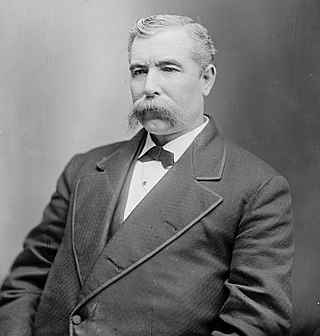
Thomas Lowry Young was an American politician from the U.S. state of Ohio. Young, a Republican, served as the 33rd governor of Ohio from March 2, 1877, to January 14, 1878.
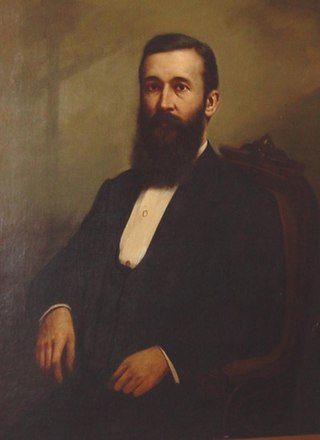
Edward Follansbee Noyes was a Republican politician from Ohio. Noyes served as the 30th governor of Ohio.
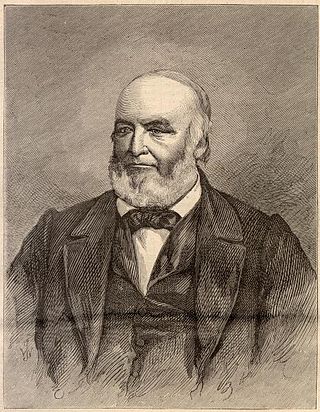
John Brough was a War Democrat politician from Ohio. He served as the 26th governor of Ohio during the final years of the American Civil War, dying in office of gangrene shortly after the war concluded.

John George Nicolay was a German-born American author and diplomat who served as private secretary to U.S. President Abraham Lincoln and later co-authored Abraham Lincoln: A History, a ten-volume biography of the 16th president. He was a member of the German branch of the Nicolay family.

John Baptist Purcell was an American prelate of the Catholic Church. He served as Bishop of Cincinnati from 1833 to his death in 1883, and he was elevated to the rank of archbishop in 1850. He formed the basis of Father Ferrand, the Ohio-based "Irish by birth, French by ancestry" character in the prologue of Willa Cather's historical novel Death Comes for the Archbishop who goes to Rome asking for a bishop for New Mexico Territory.
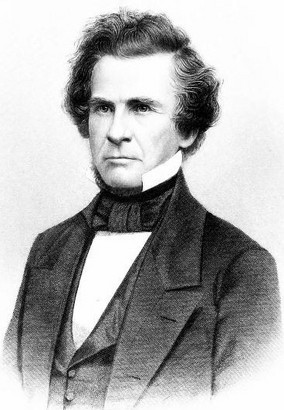
Ormsby MacKnightMitchel was an American astronomer, polymath and major general in the American Civil War.
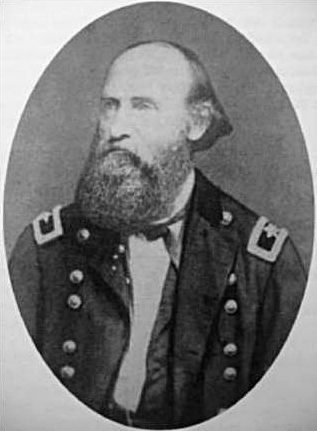
August Willich, born Johann August Ernst von Willich, was a military officer in the Prussian Army and a leading early proponent of communism in Germany. In 1847 he discarded his title of nobility. He later emigrated to the United States and became a general in the Union Army during the American Civil War.

Stephen Augustus Hurlbut was an attorney and politician, who commanded the U.S. Army of the Gulf in the American Civil War. Afterward, he continued to serve as a politician and also as a diplomat.

John (Johann) Bernhard Stallo was a German-American academic, jurist, philosopher, and ambassador.
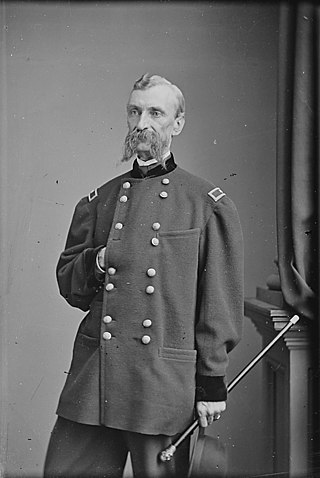
Alexander "Sandor" Asboth was a Hungarian military leader best known for his victories as a Union general during the American Civil War. He also served as United States Ambassador to Argentina and as United States Ambassador to Uruguay.

During the American Civil War, the State of Ohio played a key role in providing troops, military officers, and supplies to the Union army. Due to its central location in the Northern United States and burgeoning population, Ohio was both politically and logistically important to the war effort. Despite the state's boasting a number of very powerful Republican politicians, it was divided politically. Portions of Southern Ohio followed the Peace Democrats and openly opposed President Abraham Lincoln's policies. Ohio played an important part in the Underground Railroad prior to the war, and remained a haven for escaped and runaway slaves during the war years.
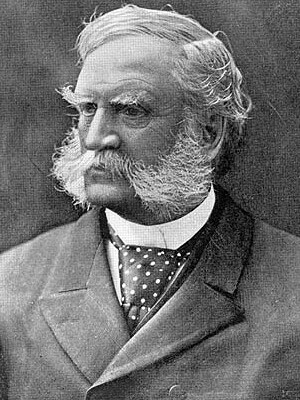
George Washington Morgan was an American soldier, lawyer, politician, and diplomat. He fought in the Texas Revolution and the Mexican–American War, and was a general in the Union Army during the American Civil War. Morgan later served as a three-term reconstruction era United States Congressman from Ohio. He also served as the United States Ambassador to Portugal from 1858 to 1861, during the term of President James Buchanan.

James Sidney Robinson was a U.S. Representative from Ohio and a general in the Union Army during the American Civil War. He served two terms in Congress from 1881 to 1885.

Bellamy Storer was an American lawyer and politician who served two terms as a U.S. Representative from Ohio from 1891 to 1895. He later served as a diplomat for the United States, serving as minister or ambassador to Belgium, Spain, and Austria.

Thomas Thompson Eckert was an officer in the U.S. Army, Chief of the War Department Telegraph Staff from 1862 to 1866, United States Assistant Secretary of War from 1866 to 1867 and an executive at Western Union.

Peter John Sullivan was an Irish-American soldier and lawyer, who became United States Ambassador to Colombia.

Charles Whittlesey was a soldier, geologist, historian, and an investigator of mounds relics of the United States. He is described by Ephraim George Squier and Edwin Hamilton Davis in their book Ancient Monuments of the Mississippi Valley as a "zealous investigator" in the field of "American antiquarian research."

William Turner Coggeshall (1824–1867) was a publisher, librarian, and ambassador. He was a self-appointed bodyguard for Abraham Lincoln.





















